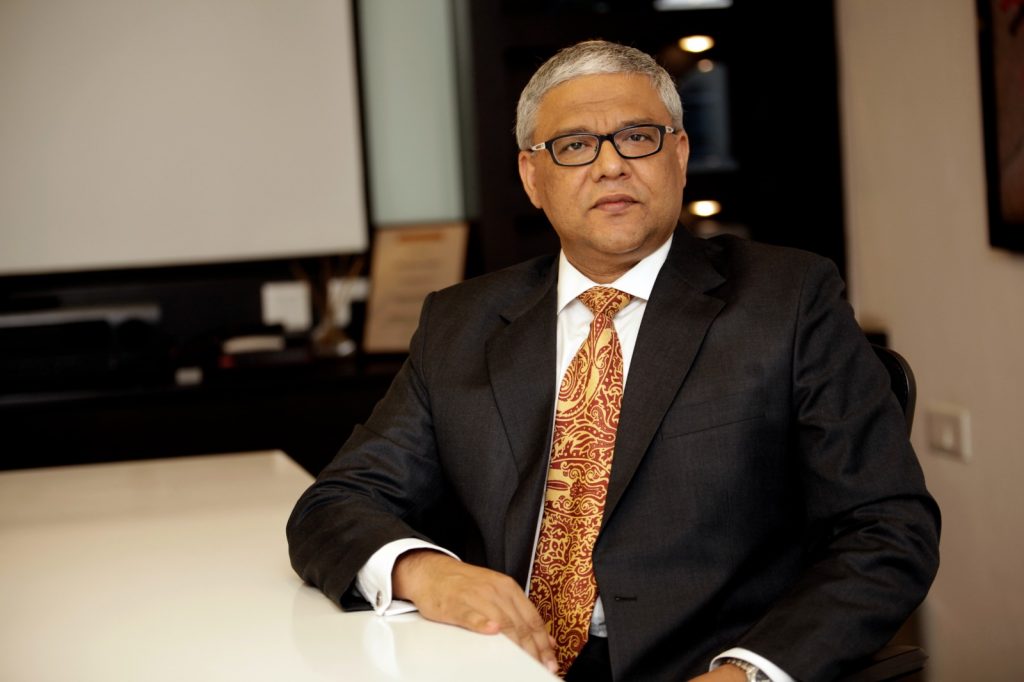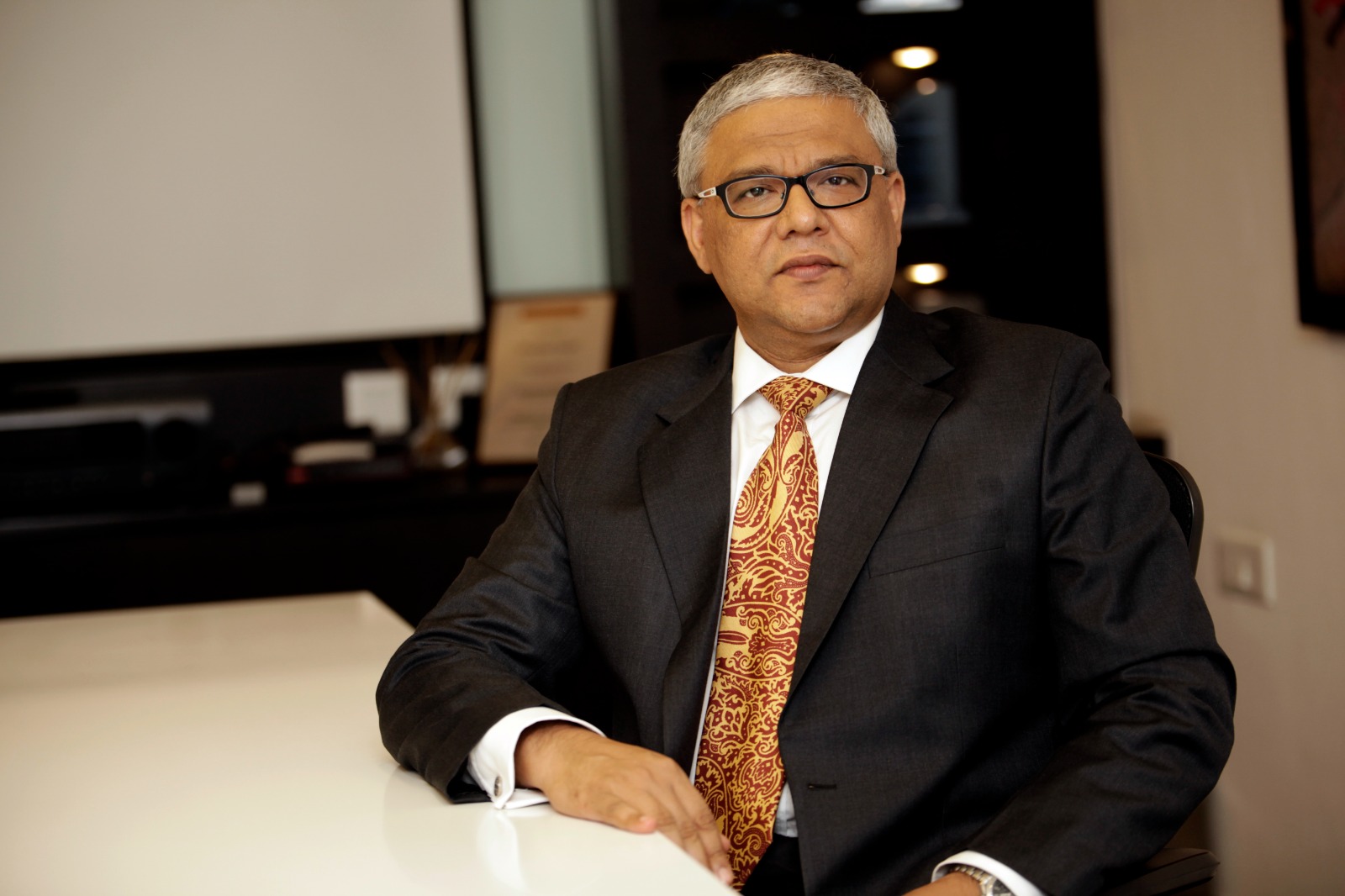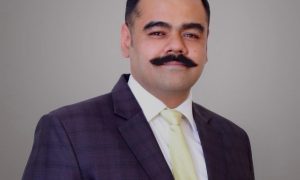This interview has been published by Priyanka Karwa and The SuperLawyer Team

Sir, could you please share with us your journey and how you ended up pursuing a career in law, especially with such a diverse background that includes corporate, commercial, and employment law?
Prior to joining Law School (National Law School of India University) I was lucky enough to have interacted with Prof. Dr. N. R. Madhava Menon. It was these interactions that led me to sit for the entrance exam.
At the time I graduated, law firms did not put lawyers into specific practice areas as is the case today. I, therefore, got exposed to various areas of laws during my initial years. At that point of time, the liberalisation of the Indian economy was slowly gathering steam and owing to the same, I ended up doing a lot of corporate and commercial work and found that I enjoyed it.
You have extensive experience in mergers, acquisitions, private equity investments, and joint ventures. Could you tell us about a particularly challenging or memorable deal you’ve worked on and what made it stand out?
Every transaction is memorable since by its very nature a transaction consists of balancing competing interests and arriving at a result which is a win-win. Personally speaking, the learnings from each transaction have been different since nearly all of them required me to ‘re-learn’.
In addition to your work in M&A and private equity, you’ve also advised on real estate transactions. What are some key considerations for clients when navigating the complexities of real estate deals, especially in India?
Real estate practice in India is fairly varied in terms of local practices and on-ground situations. A good real estate practitioner needs to be familiar with multiple laws which impact real estate such as stamp duty laws, succession laws under various communities, environmental laws, land acquisition, etc.
For a good real estate practitioner, balancing commercial needs with on-ground realities and legal protection is key and this is something which requires time and experience. A diligent real estate lawyer is one who is aware of the legal precedents on a continuous basis.
You’ve had the opportunity to work both in India and internationally, including with European clients on investment opportunities in India. What are some key differences you’ve noticed in the legal landscape and business practices between these regions?
One of the key differences I noticed while working abroad was the focus and attention given by law firms to the mental well-being of their lawyers. The other big difference was the way big law firms were structured to ensure focus on quality of deliverables, knowledge management, standardisation of work products, etc. Indian law firms have taken time to walk down this path.
Shareholder and commercial disputes can be intricate and sensitive matters. Can you discuss some strategies or approaches you’ve used to successfully resolve these types of conflicts for your clients?
In India, given the stress our judicial system has, it becomes imperative to resolve disputes efficiently in a time bound manner. This makes alternative modes of dispute resolution including negotiation and mediation particularly important. Drafting commercial agreements which will stand the test of a legal challenge is a first step towards ensuring prevention of such disputes. Furthermore, a key aspect in intricate shareholder and commercial disputes is the careful balancing of interests of both parties that a lawyer must strive for to ensure a speedy redressal of grievances of the parties involved. In my experience, commercial disputes usually arise when the thought process of the people at the time of entering into the transaction has shifted which leads to one of the parties trying to ‘re-interpret’ the intention behind a particular provision of a transaction document. By drafting documents using language which is not capable of multiple interpretations, some of these disputes can be resolved without having to go down a lengthy process of dispute resolution.
In my view, mediation seems to be the way forward, especially for shareholder and commercial disputes considering the many benefits it offers. Lawyers and law firms would be well advised in educating themselves in this area and then advising their clients to use mediation as a process to resolve issues.
Your career has spanned various roles, including Managing Partner at Lumiere Law Partners and Director (Legal) at the Avenue Capital Group. How have these diverse experiences shaped your approach to legal practice and client service?
During my formative years as a legal professional, I was very fortunate to have worked directly under lawyers who I would consider as doyens of the legal profession. Their kindness in taking the time out to mentor me is perhaps the biggest reason why I enjoy what I do even today. While reading and constantly updating oneself is a prerequisite for a lawyer to do well in the profession, client servicing (learning how to deal with clients) is something which is equally important. I built upon my client servicing skills gradually over the course of my career while working at law firms in India and abroad. When I was working at Avenue Capital, I was essentially a client for law firms and that stint was invaluable in giving me the perspective from the other side – how a client ‘measures’ law firms/ lawyers and what he expects from his legal counsel(s).
You’ve been recognized by prestigious legal publications like the Legal 500 and Chambers and Partners. What do you attribute to your success in the legal field, and how do you stay current and relevant in such a dynamic industry?
One of my professors in law school had once made a comment, “Lawyers are not brilliant by birth, they become brilliant only by working hard”. The legal profession is one of those where knowledge trumps everything else. When I started off my career, there was no internet, no google, which have now become an integral part of our lives. Reading and researching, the two essential elements that form a key part of a lawyer’s arsenal, were to be approached differently as compared to today’s times. This, however, is only half the story. Truly brilliant lawyers, in my experience, have a third element which is ‘analysis’. In order to stay relevant in an ever-evolving legal landscape, especially in India, the first order of business is to read as much as possible and then analyse what one has read to see how to best use that learning. Further, having a problem-solving attitude is critical in order to be able to serve your clients effectively and efficiently.
You’re currently the Managing Partner of EVA Law. Can you tell us about your vision for the firm and the areas of law where you see the most growth and potential in the coming years?
The word ‘EVA’ stands for life itself. My vision for EVA Law is not so much for the firm but for the lawyers who work with us. My learning over nearly three decades is that for any vision to be successful, it has to first become a value system for the people in the organization.
My vision for EVA would be threefold:
(a) Building a culture of extraordinary mentorship. Lawyers in EVA Law must instil a culture of thirst for knowledge and achieving excellence. The culture must embrace openness and inclusiveness. The mentorship must encourage everyone to aspire to become leaders and decision makers.
(b) Recognising teamwork is critical. Every team member in EVA Law will be respected and appreciated for their contribution and learn from each other in that process. Younger members of the team must feel committed to the process.
(c) Dealing with mistakes and failures – The work culture must empower people to be secure enough to admit wrong decisions. Failures and mistakes are not about putting blame on someone but learning individually and collectively.
In terms of the areas of law that have a lot of potential, data privacy is right up there. I also feel that with the growing trend towards digitisation, cyber security laws will be in vogue. Also as I mentioned above, mediation will be an important area.
As someone who has achieved remarkable success in the legal profession, what advice would you give to law school graduates and young professionals aspiring to excel in their legal careers?
All the recognitions and accolades that I have received in my career are not by any stretch of imagination attributable to anything extraordinary done by me. They are a reflection of all my team members who have worked extremely hard to ensure that our work got noticed. Success means different things to different people. For me, success is the fact that people who have worked with me have gone on to become remarkable lawyers; success is the fact that lawyers in my team who are less than half my age call me by name; success is the fact that my clients allow me to tell them what they ought to hear rather than what they want to hear. To all the law graduates out there aspiring to make a mark in the legal profession, all I would like to say is that be the lawyer who other lawyers call when they need good advice and (quite importantly) don’t take yourself too seriously.
Get in touch with Probal Bhaduri-


























